IPPCAAS Reveals a New Mechanism for E3 Ubiquitin Ligases in Rice, Regulating Resistance to Rice Blast and Flowering Time by Targeting Homologous Substrate Proteins
Recently, the Crop Pathogen Functional Genomics Research Innovation Team at the Institute of Plant Protection, Chinese Academy of Agricultural Sciences (IPPCAAS), published a paper titled "A pair of E3 ubiquitin ligases control immunity and flowering by targeting different ELF3 proteins in rice" in Developmental Cell (a Cell journal). The study reports a new mechanism in which a pair of E3 ubiquitin ligases in rice synergistically control both immunity and flowering by targeting different homologous ELF3 proteins.
The ubiquitin-proteasome system plays crucial roles in processes like plant growth, development, and stress responses. E3 ubiquitin ligases are widely involved in plant-pathogen interactions through recognition of the target proteins. Previous research by the team identified the E3
ubiquitin ligase APIP6 as a positive regulator of rice resistance to the rice blast fungus by targeting the substrate protein OsELF3-2 for degradation.
In this study, yeast library screening revealed that APIP6 forms a heterodimer with the E3 ubiquitin ligase IPI1, both interacting with OsELF3-2 and promoting its degradation via the 26S proteasome system. This interaction positively regulates rice immunity against the rice blast fungus. Further studies showed that IPI1 specifically interacts with the OsELF3-2 paralog OsELF3-1, promoting its degradation through the same proteasome system. Overexpressing IPI1 in rice resulted in a late-flowering phenotype similar to the oself3-1 mutant, which also showed enhanced resistance to the rice blast fungus. By contrast, the oself3-2 mutant showed no significant difference in flowering time compared to the wild type, suggesting functional differentiation of the homologous ELF3 proteins in regulating immunity and flowering.
Interestingly, the heterodimer of IPI1 and APIP6 synergistically modulates the accumulation of OsELF3-1 and OsELF3-2 proteins, thus precisely controlling both rice immunity and flowering time. This study offers new evidence for the evolution of homologous proteins in plants. It also introduces a novel mechanism in which a pair of E3 ubiquitin ligases target homologous substrate proteins to regulate immunity and flowering, laying the foundation for developing new crop varieties that are disease-resistant and have optimized flowering periods.
Notably, this study complements a paper by Professor Wang Jing’s team at Sichuan Agricultural University, titled "E3 ubiquitin ligase IPI1 controls rice immunity and flowering via both E3 ligase-dependent and -independent pathways," which was also published in Developmental Cell .
The study was led by Xu Xiao (Ph.D. candidate jointly trained with China Agricultural University) and Shi Xuetao (postdoctoral researcher at IPPCAAS), with Researcher Ning Yuese from IPPCAAS serving as the corresponding author. The research was supported by the National Key R&D Program, the National Natural Science Foundation, and the CAAS Agricultural Science and Technology Innovation Program.
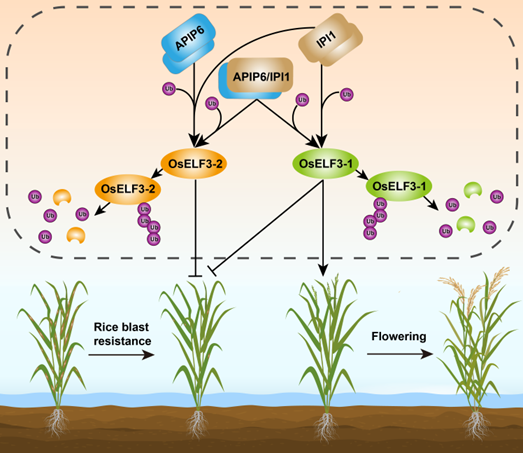
-
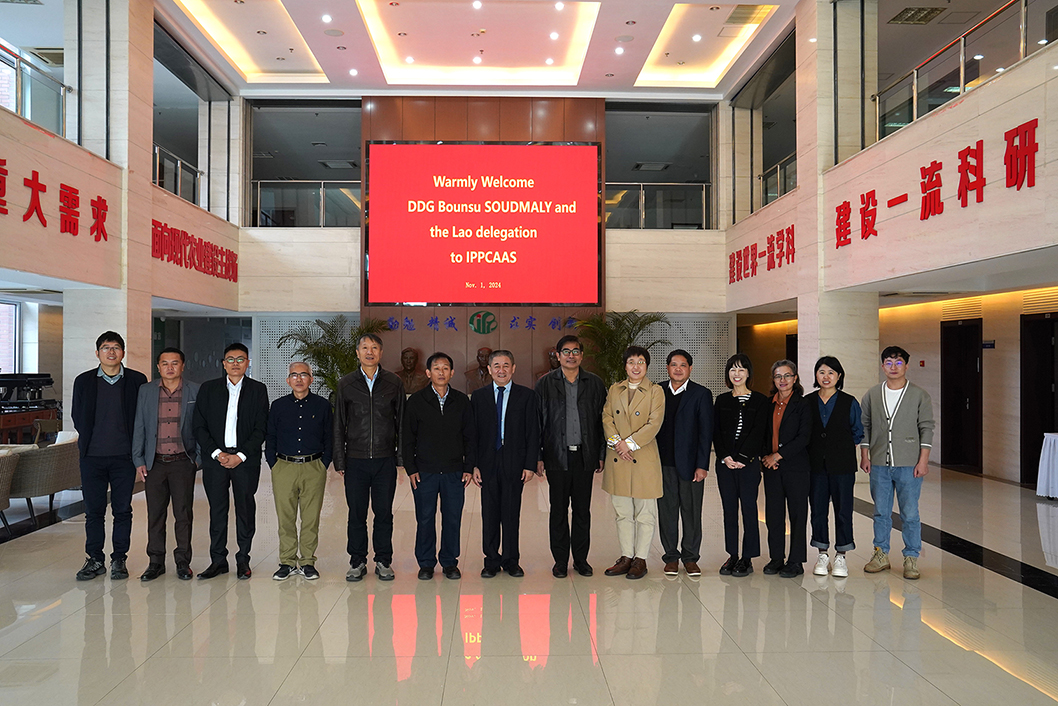 The Lao PDR-China Joint Laboratory for Plant Protection holds technical seminar at IPPCAAS
The Lao PDR-China Joint Laboratory for Plant Protection holds technical seminar at IPPCAAS -
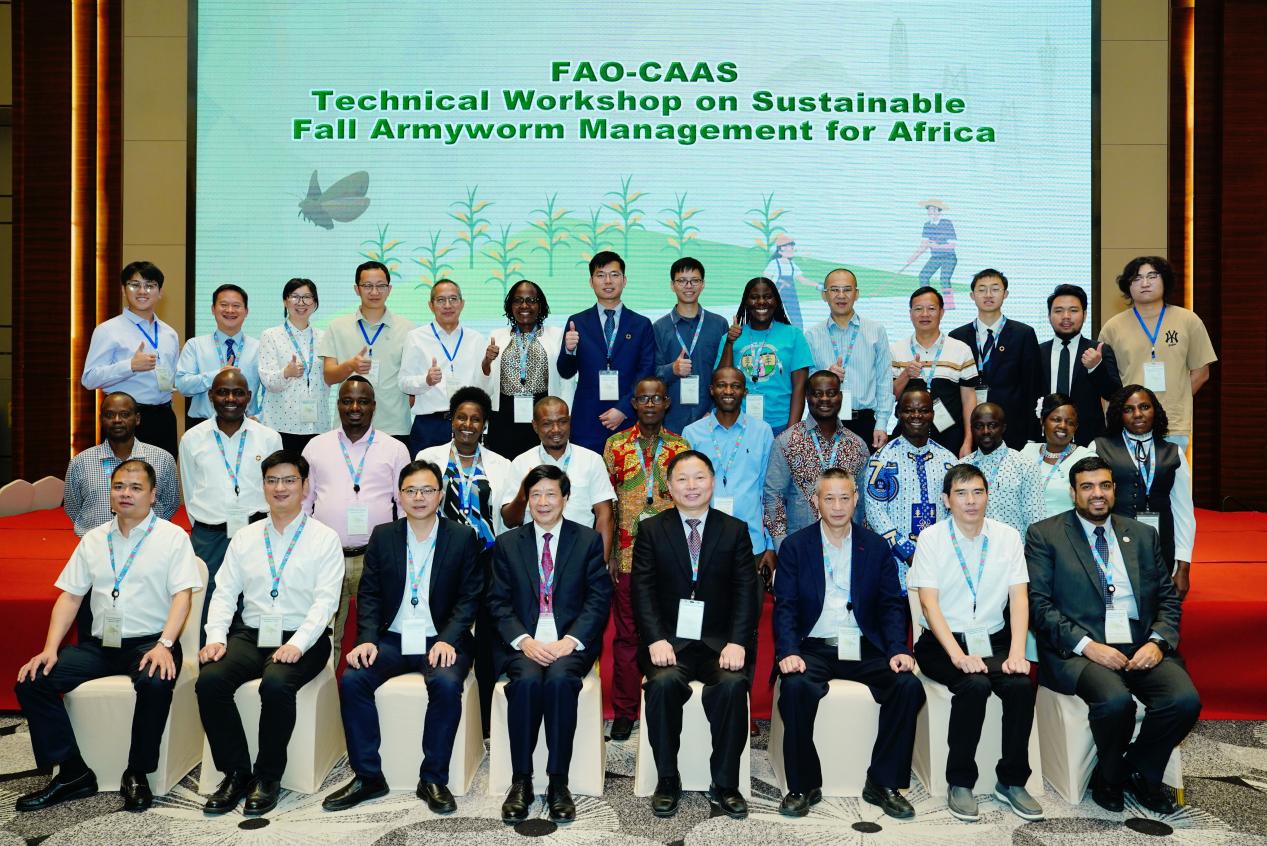 IPPCAAS Successfully Organized the FAO-CAAS Technical Workshop on Sustainable Fall Armyworm Management for Africa in Guangdong
IPPCAAS Successfully Organized the FAO-CAAS Technical Workshop on Sustainable Fall Armyworm Management for Africa in Guangdong -
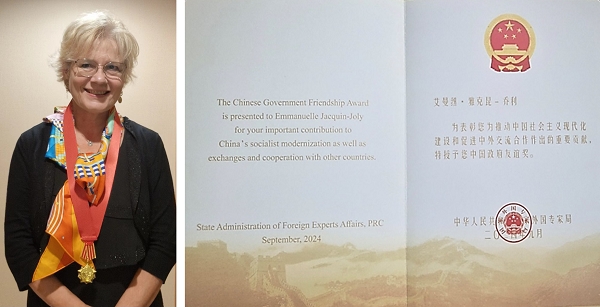 IPPCAAS Hosts Symposium for CAAS-INARE International Joint Laboratory for Plant Protection to Congratulate Professor Emmanuelle Jacquin-Joly on Receiving the Chinese Government Friendship Award
IPPCAAS Hosts Symposium for CAAS-INARE International Joint Laboratory for Plant Protection to Congratulate Professor Emmanuelle Jacquin-Joly on Receiving the Chinese Government Friendship Award -
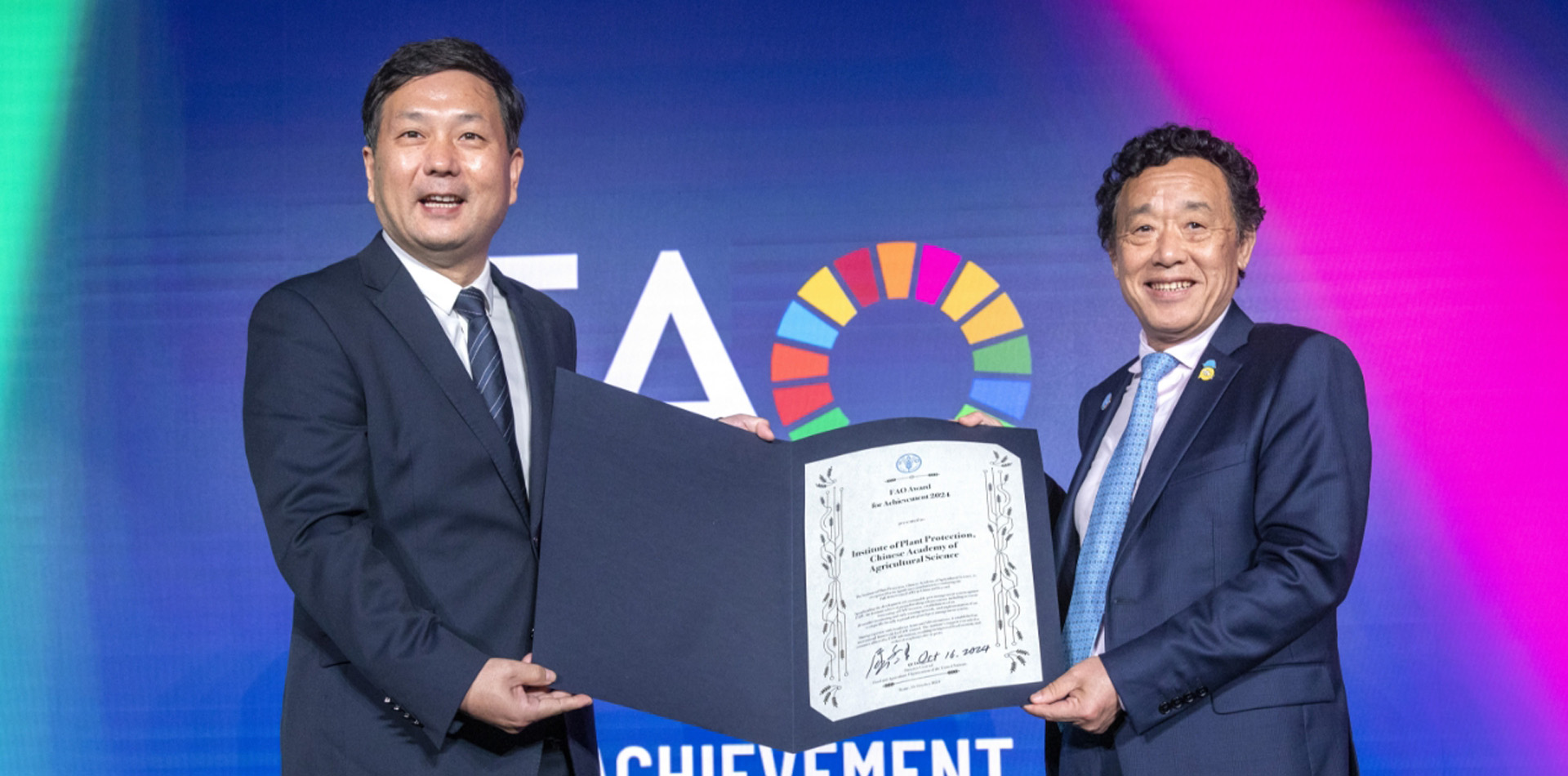 IPPCAAS Wins the 2024 FAO Achievement Award
IPPCAAS Wins the 2024 FAO Achievement Award
